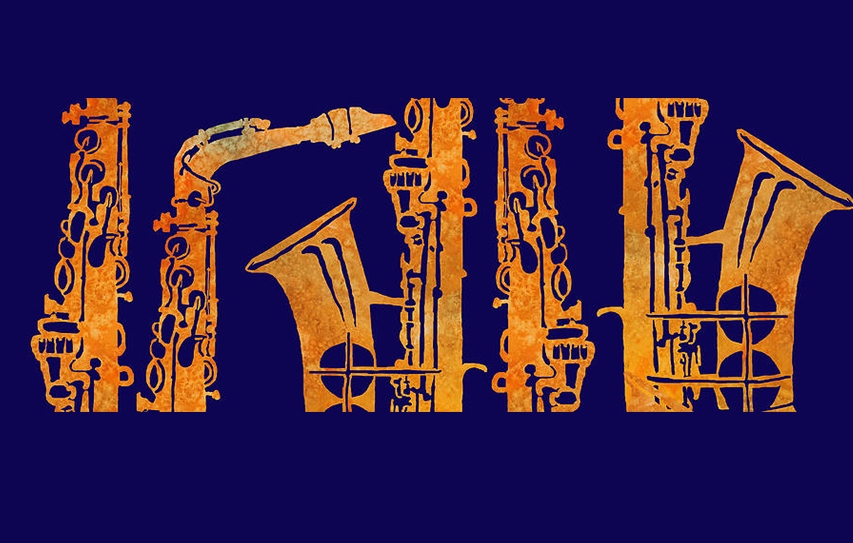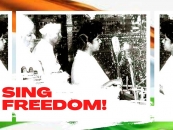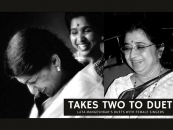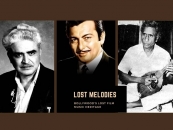
Retroscope - Unsung Talents
by Rinki Roy Bhattacharya December 2 2015, 4:51 pm Estimated Reading Time: 4 mins, 49 secsIt was the day they got married, remembers Mrs Salil Chowdhury, chuckling to herself, when the letter arrived inviting Chowdhury to Bombay. The particular letter that was to change the course of the composer’s life, and his professional chart. Director Bimal Roy had been persuaded to watch Satyen Bose’s Bangla film Rickshawalla by his assistant, Ritwick Kumar Ghatak. The moving story of a migrant drawn to the city for survival had impressed director Bimal Roy so much that he wanted the Hindi remake rights of this story for his own production house. And who was the writer of the story? Salil Chowdhury. That was to be a red letter day for the Chowdhurys, smiles his gentle widow, Jyoti Kakima, adding the footnote:
“Salil got Bimalda’s letter on our wedding. For us, it was a double celebration. Soon after that we started for Bombay.”
Bimal Roy remade Rickshawalla into Do Bigha Zamin, the debut title of Bimal Roy Productions. Hailed as India’s first neo realist film, it made cinematic history by winning a citation at the Cannes, the Karlovi Vary, and Moscow Film Festivals, wining accolades around the world. It remains a textbook for budding film makers and one of the ten best Indian films of all times. With this film, Salil Chowdhury too made his debut into Hindi cinema as did Bimal Roy as a producer. It must be added that historically, Do Bigha Zamin is the first Indian film to be released at the Metro theatres. There are many firsts to its credit. However, this is not about Do Bigha Zamin. To continue, amongst Salil Chowdhury’s talented group of musicians were a few who could, given a chance, become independent composers. Not all made it, of course.
During one of his visits, Chowdhury happened to spot a gifted saxophone player from one of the Calcutta night-club bands. The night-clubs of Bengal’s capital, were celebrated for their jazz artists. Louis Banks, for example, is originally from a Calcutta band. The performer I want to mention was originally from Nepal and a cousin of Louis Banks. Manohari Singh by name, he was equally gifted with the flute as with the sax. Chowdhury invited Manohari to join him.
You first hear Singh’s flute pieces in Madhumati. Once he got to Bombay, there was no looking back for Singh who became S.D.Burman’s lead sax player. You hear his delightful sax interludes in Roop Tera Mastana or in Gata Rahe Mera Dil in Vijay Anand’s Guide. The father son-duo, S.D Burman and R.D Burman, used this gifted musician to great advantage, and he continued to play for Salil Chowdhury’s compositions. There is one forgotten film credited to Manohari as composer along with another musician named Basu, but the pair Basu- Manohari, was short lived.
In Chowdhury’s repertory there were many other noted performers. In the orchestra those days played Pandit Shiv Kumar Sharma, Pandit Hariprasad Chaurasia, and Ustad Zakir Hussaain – all luminaries from the world of classical music. Chowdhury’s two able assistants, were both strangely named Kanu. There was a Kanu Ghosh and a Kanu Roy. The former remained Chowdhury’s assistant but the latter, Kanu Roy, branched off as a composer after he left Chowdhury in the early 1970s.
I have vivid memories of Kanu Roy or Kanu-da as we called him who was briefly engaged as my music teacher. A lean man, who spoke little, Kanu-da always seemed to hum a nameless tune. As a teenage girl, I found this highly amusing. My friends and I laughed behind his back, made fun of this man who seemed utterly lost in a world of humming melodies, eyes shut. He was, however, oblivious to the mirth his unconscious behaviour caused in a bunch of giggly girls.
By the time I married Basu, Kanu-da had left Salil Chowdhury. He was one of the jobless bachelors hanging round our place; always immersed in humming as he played card games along with other good-for-nothings all dreaming of making it big in Bollywood. Then came the surprise. Finally the break, he wanted for years. Basu Bhattacharya got the FFC (former NFDC) loan to make Anubhav. Basu did not have a budget to sign a well-known composer or even a lyricist. Kanu-da stepped in to compose. Gulzar, another jobless bachelor, answered the need of a lyricist along with Kapil Kumar, and presto, a composer was born! As was the lyricist- Kapil Kumar.
Very few today will remember this lean, quiet man who scored the marvellous song ofAnubhav sung by Geeta Dutt:
“Meri Jaan, Mujhe Jaan Na Kaho, Meri Jaan…”
This was one of Geeta Dutt’s farewell solos before the nightingale was silenced. Or the melodious Manna Dey number for that matter:
“Hasne ki chaah ne….” from Aavishkar.
The Anubhav budget by the way, did not have any sanction for a full-fledged orchestra of seventy musicians – the common norm those days. These songs were composed with as little as four musicians- a vibraphone, flute, tar shehnai and the tabla. Kanu-da achieved the incredible feat of composing his songs with a minimalist orchestra; songs that have not lost their enchanting melody.
His songs continue to be hummed and enthral listeners, but the man who created them remains a shadowy, nameless composer. His name does not ring any bell nor does it appear in a glittering neon sign. Kanu-da, I am afraid, did not get his due.
This is a belated personal tribute to Kanu Roy the unsung composer from his erstwhile student; a small Guru-dakshina that I offer a gifted composer who deserved to be admired.




-173X130.jpg)

-173X130.jpg)
-173X130.jpg)
-173X130.jpg)


